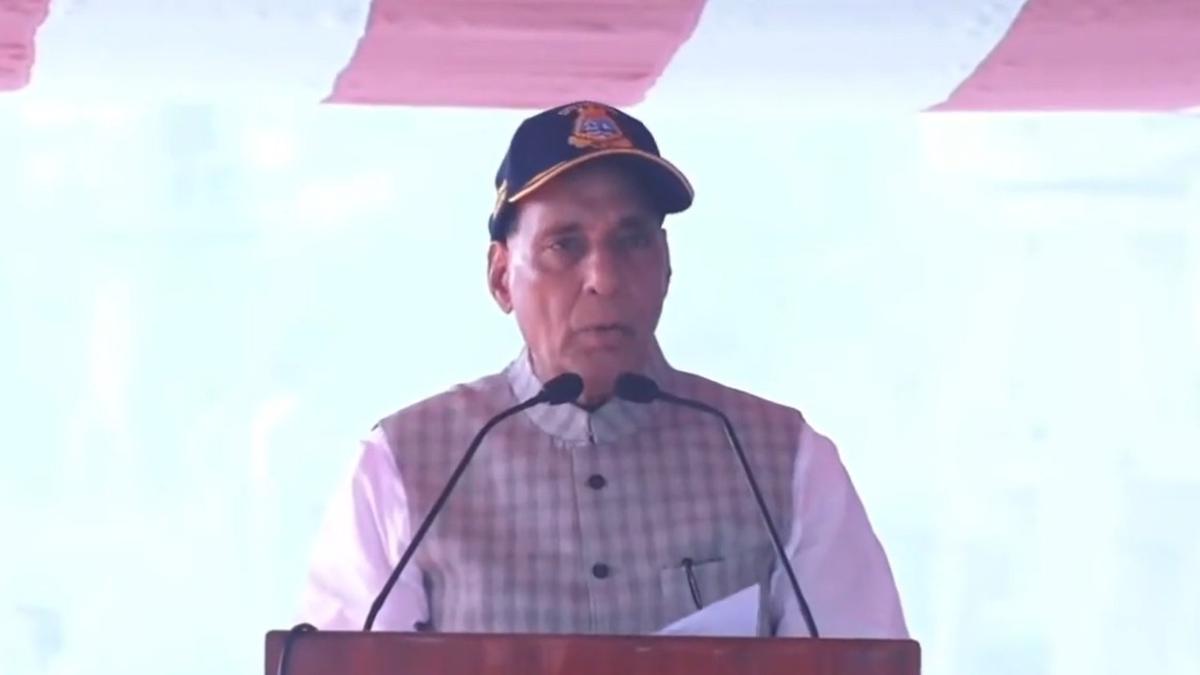
Will find attackers of merchant navy ships even from depths of seas and take strict action, says Rajnath Singh
The Hindu
Indian government takes serious cognisance of recent attacks on merchant navy ships; will take strict action against perpetrators.
The Indian government has taken serious cognisance of the recent attacks on merchant navy ships MV Chem Pluto and MV Sai Baba, and it will take strict action against those behind the attacks by finding them even from the "depths of seas", Defence Minister Rajnath Singh said on December 26.
Speaking after the commissioning of stealth guided missile destroyer INS Imphal, Mr. Singh said India has intensified patrolling of the seas after the recent attacks on merchant navy ships.
“The Indian government has taken the drone attack on MV Chem Pluto and attack on MV Saibaba in the Red Sea seriously. We will find those who executed the recent attacks on merchant navy ships even from the depths of the seas and take strict action against them,” Mr. Singh said.
MV Chem Pluto with 21 Indian crew members, was struck by a drone about 217 nautical miles from Porbandar on Saturday following which both the Indian Navy and the Indian Coast Guard deployed a number of assets to provide assistance to the ship.
A Gabon-flagged commercial crude oil tanker with 25 Indian crew members reportedly came under a drone attack in the Southern Red Sea. Indian officials later clarified that the commercial oil tanker was not an Indian-flagged vessel.
Meanwhile, Navy chief Admiral R Hari Kumar said four destroyers have been deployed to counter piracy and drone attacks on merchant ships.

“Writing, in general, is a very solitary process,” says Yauvanika Chopra, Associate Director at The New India Foundation (NIF), which, earlier this year, announced the 12th edition of its NIF Book Fellowships for research and scholarship about Indian history after Independence. While authors, in general, are built for it, it can still get very lonely, says Chopra, pointing out that the fellowship’s community support is as valuable as the monetary benefits it offers. “There is a solid community of NIF fellows, trustees, language experts, jury members, all of whom are incredibly competent,” she says. “They really help make authors feel supported from manuscript to publication, so you never feel like you’re struggling through isolation.”

Several principals of government and private schools in Delhi on Tuesday said the Directorate of Education (DoE) circular from a day earlier, directing schools to conduct classes in ‘hybrid’ mode, had caused confusion regarding day-to-day operations as they did not know how many students would return to school from Wednesday and how would teachers instruct in two modes — online and in person — at once. The DoE circular on Monday had also stated that the option to “exercise online mode of education, wherever available, shall vest with the students and their guardians”. Several schoolteachers also expressed confusion regarding the DoE order. A government schoolteacher said he was unsure of how to cope with the resumption of physical classes, given that the order directing government offices to ensure that 50% of the employees work from home is still in place. On Monday, the Commission for Air Quality Management in the National Capital Region and Adjoining Areas (CAQM) had, on the orders of the Supreme Court, directed schools in Delhi-NCR to shift classes to the hybrid mode, following which the DoE had issued the circular. The court had urged the Centre’s pollution watchdog to consider restarting physical classes due to many students missing out on the mid-day meals and lacking the necessary means to attend classes online. The CAQM had, on November 20, asked schools in Delhi-NCR to shift to the online mode of teaching.









